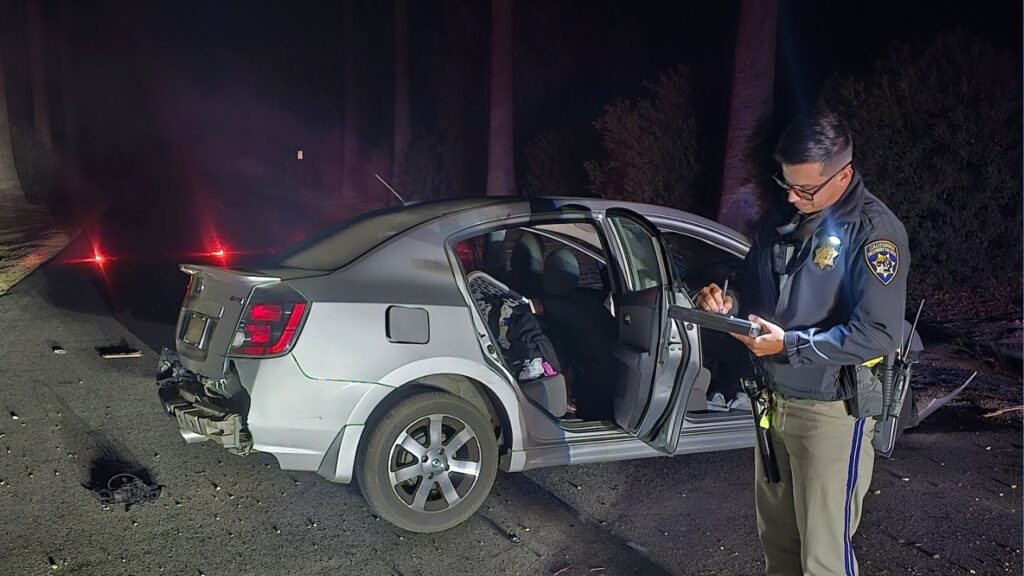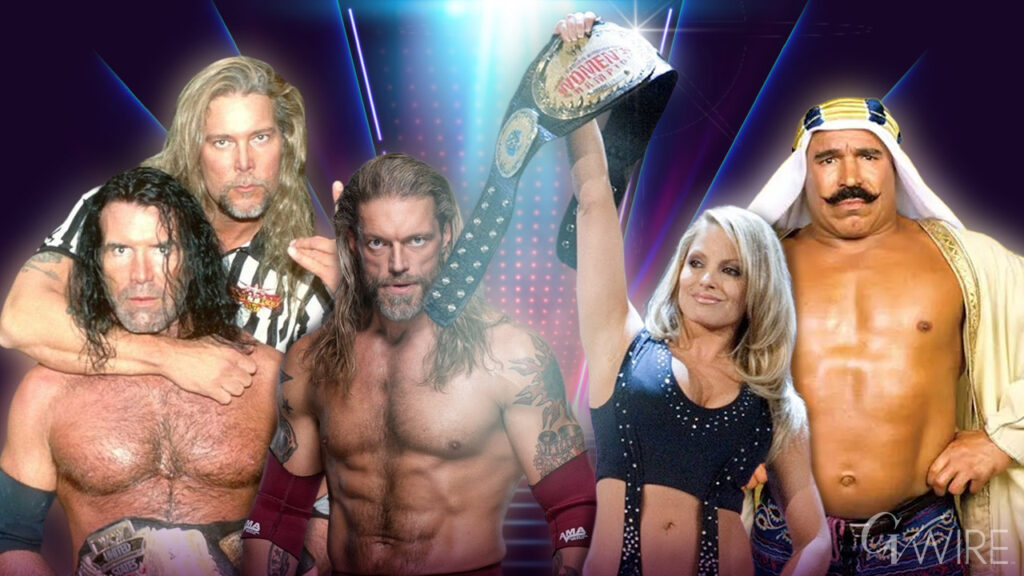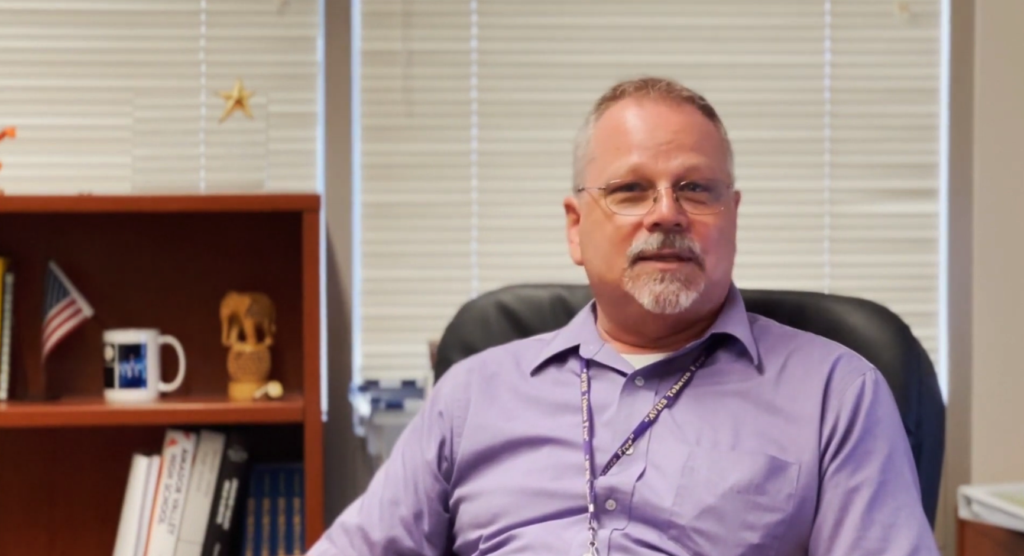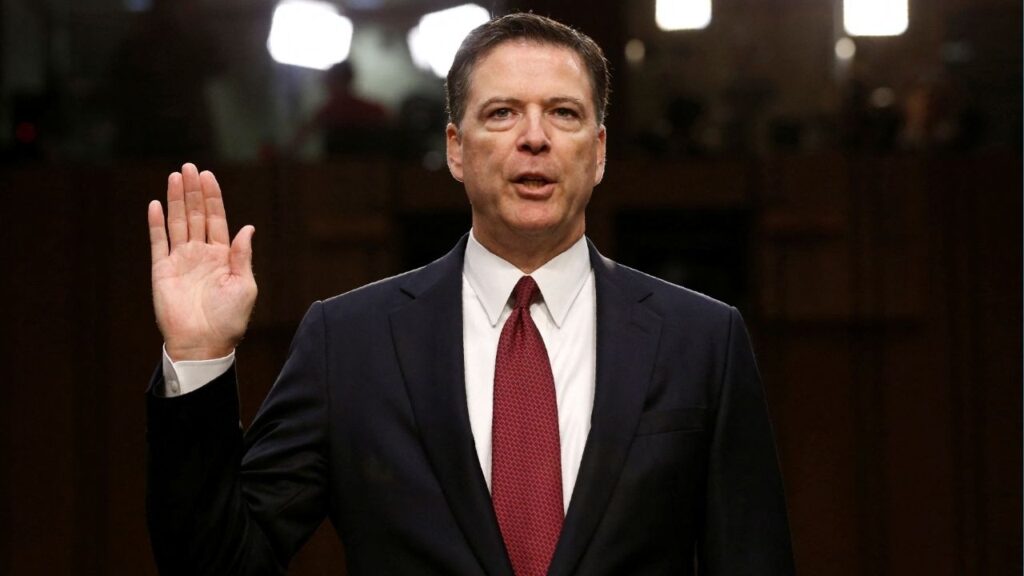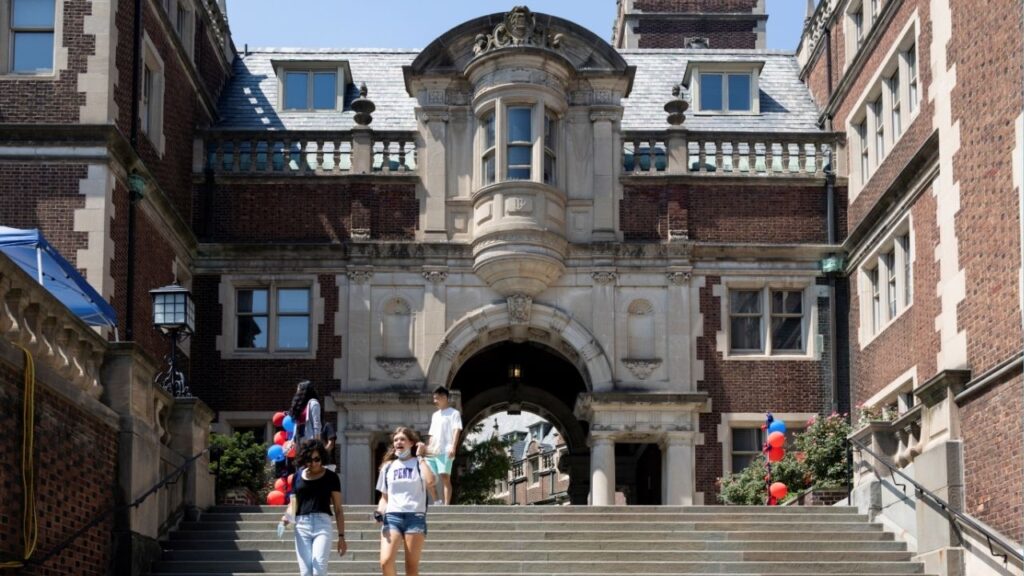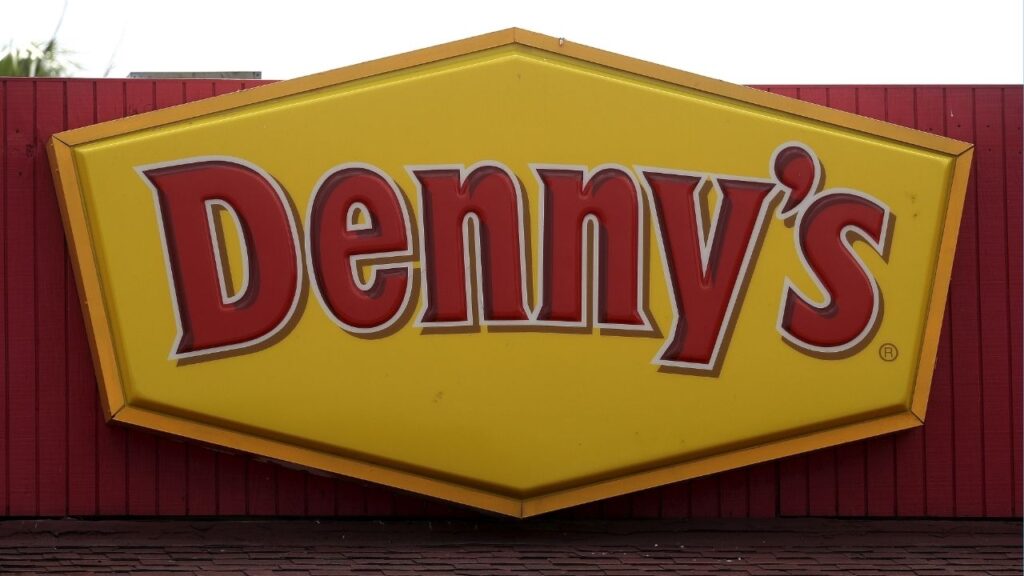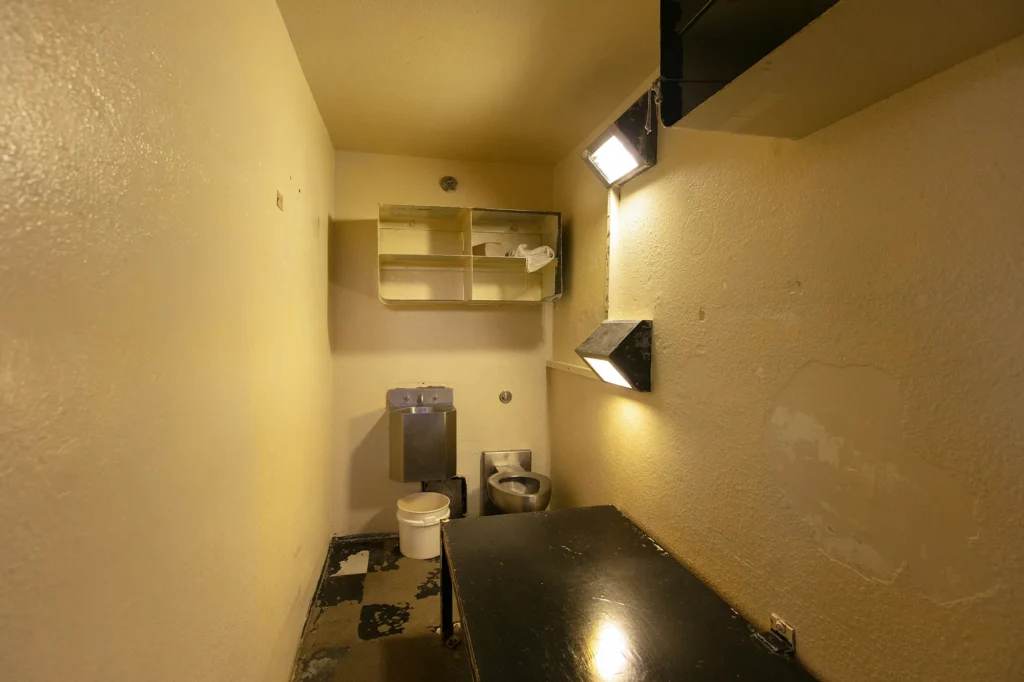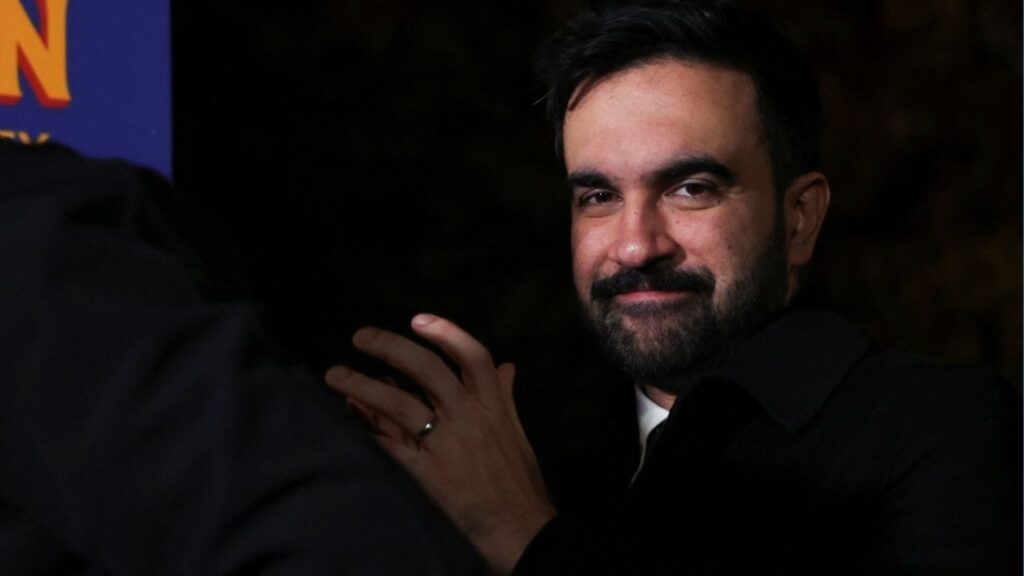President Donald Trump listens to a question from a reporter as he signs executive orders in the Oval Office at the White House, Monday, Feb. 10, 2025, in Washington. (AP/Alex Brandon)

- European leaders are grappling with Trump's plan to negotiate Ukraine peace terms with Putin, excluding both Ukraine and Europe.
- European nations consider deploying peacekeeping troops and increasing military spending amid U.S. uncertainty on security commitments.
- Trump's tariff threats and shifting Ukraine strategy add economic and political strain to trans-Atlantic relations.
Share
|
Getting your Trinity Audio player ready...
|
LONDON — For years, European leaders have fretted about reducing their dependence on a wayward United States. On Monday, at a hastily arranged meeting in Paris, the hand-wringing gave way to harried acceptance of a new world in which Europe’s most powerful ally has begun acting more like an adversary.
President Donald Trump’s plan to negotiate a peace settlement in Ukraine with President Vladimir Putin of Russia, with neither the Ukrainians nor Europeans invited to take part, has forced dazed leaders in capitals like Berlin, London and Paris to confront a series of hard choices, painful trade-offs and costly new burdens.
European Countries Send Thousands to Ukraine
Already on the table is the possibility that Britain, France, Germany and other countries will deploy tens of thousands of troops to Ukraine as peacekeepers. European governments are affirming the need for major increases in their military budgets — if not to the 5% of gross domestic product demanded by Trump, then to levels not seen since the Cold War days of the early 1980s.
“Everybody’s hyped up at the moment, understandably,” said Lawrence Freedman, emeritus professor of war studies at King’s College London. “What is clear is that whatever happens, Europe will have to step up.”
That could put its leaders in a difficult spot. While public support for Ukraine remains strong across Europe, committing troops to potentially dangerous duty on Ukrainian soil could quickly become a domestic political liability. Estimates on the size of a peacekeeping force vary widely, but under any scenario, it would be an extremely expensive undertaking at a time of straitened budgets.
President Emmanuel Macron of France, who first floated the idea of a peacekeeping force last year — to widespread skepticism in Europe — has been weakened since his decision to call parliamentary elections last summer backfired and left him with a fragile government.
Germany may not have a new coalition government for weeks after its election on Feb. 23. On Monday, its chancellor, Olaf Scholz, dismissed talk of peacekeepers as “completely premature” and “highly inappropriate” while fighting was still raging.
Prime Minister Keir Starmer of Britain, who does not have to face voters for four years, said Britain was open to “putting our troops on the ground if necessary.” But former military officials said that after years of budget cuts, the British military was not equipped to lead a large-scale, long-term mission in Ukraine.
“Frankly, we haven’t got the numbers, and we haven’t got the equipment,” Richard Dannatt, a former head of the British army, told the BBC. He estimated that Britain would have to supply up to 40,000 troops to a 100,000-strong force.
Too Soon to Talk About Post-US Era
For some Europeans, it is too soon to talk about a post-U.S. era on the continent. Scholz and Poland’s prime minister, Donald Tusk, warned leaders not to sunder the trans-Atlantic alliance, whatever the current tensions.
As a practical matter, a peacekeeping force would be difficult without logistical support from the United States. U.S. security assurances, analysts said, were crucial to making it politically acceptable in European capitals, where some leaders will have to win approval from their parliaments. Starmer spoke of an “American backstop,” saying that was “the only way to effectively deter Russia from attacking Ukraine again.”
Freedman said he believed senior Trump administration officials like Secretary of State Marco Rubio and national security adviser Michael Waltz understood those realities and were not bent on pulling the United States’ security umbrella from Europe. But he said Trump’s goals were harder to decipher; his drive for untrammeled power at home has been deeply alarming to Europeans.
“In the past, you assumed that this was a serious, competent country,” Freedman said. “It’s unnerving to think that might not be the case. There is a sense that the guardrails just aren’t there.”
At the Munich Security Conference this past week, Vice President JD Vance delivered a blistering speech in which he urged Europeans to stop shunning far-right parties and accused them of suppressing free speech.
Those comments prompted anguish among Europeans. “We have to fear that our common value base is not that common anymore,” said Christoph Heusgen, who chaired the conference. Heusgen, who was clearly emotional at the end of his speech, later clarified that his strong feelings were because he was leaving his job and were not a reaction to Vance’s comments.
Germans Viewed Comments as Election Interference
Many Germans viewed the vice president’s comments as brazen election interference. Vance, who skipped a meeting with Scholz, did find time to meet with the co-leader of the far-right Alternative for Germany party, or AfD, Alice Weidel. Germany’s mainstream parties have refused to enter coalitions with the AfD, which German intelligence agencies classify as an extremist organization.
Trump, meantime, has threatened to hit the European Union with sweeping tariffs. That could damage the bloc’s economies, which would make it even harder to lift spending on defense. NATO Secretary-General Mark Rutte has called on the alliance’s members to increase their spending to “considerably more than 3%” of GDP (the United States spends 3.4%).
In 2023, Germany spent 1.5% of its GDP on defense, while France spent 2.1% and Britain 2.3%.
Beyond the political and economic provocations, European leaders are struggling to make sense of the Trump administration’s strategy for Ukraine. Defense Secretary Pete Hegseth’s remarks signaled a reduction in U.S. support for Ukraine’s war goals — something that European leaders regret but privately acknowledge they share.
Yet Treasury Secretary Scott Bessent, on a visit to the Ukrainian capital, Kyiv, last week, suggested that the United States could supply a “long-term security shield” for Ukraine, provided it obtained access to the country’s valuable minerals. Trump’s announcement of negotiations between him and Putin blindsided European leaders and President Volodymyr Zelenskyy of Ukraine.
—
This article originally appeared in The New York Times.
By Mark Landler
c. 2025 The New York Times Company






